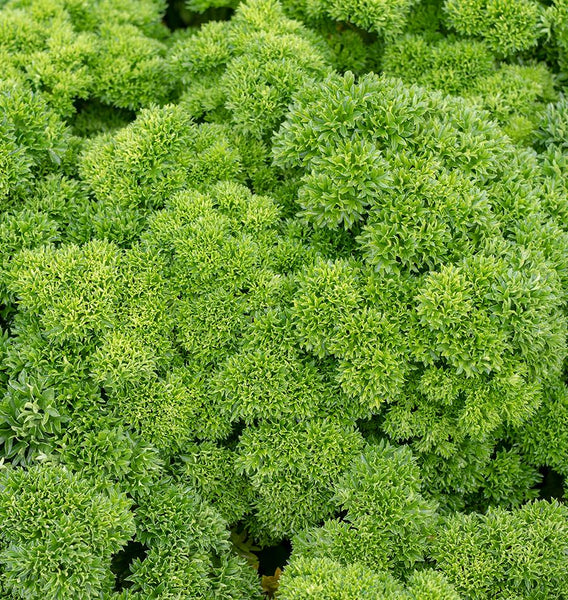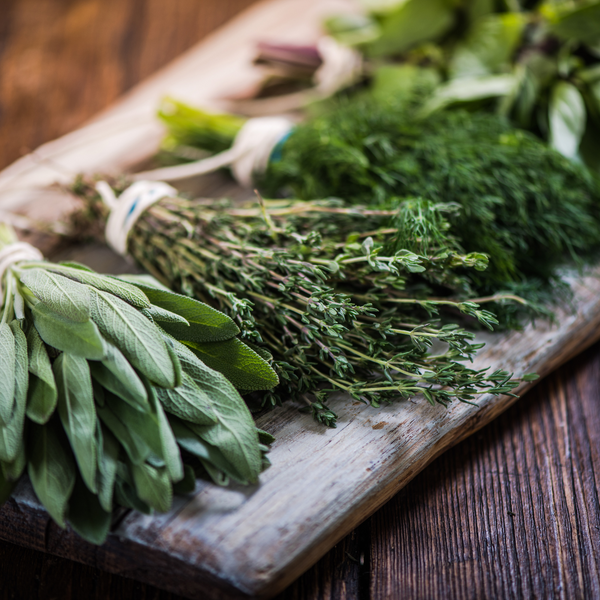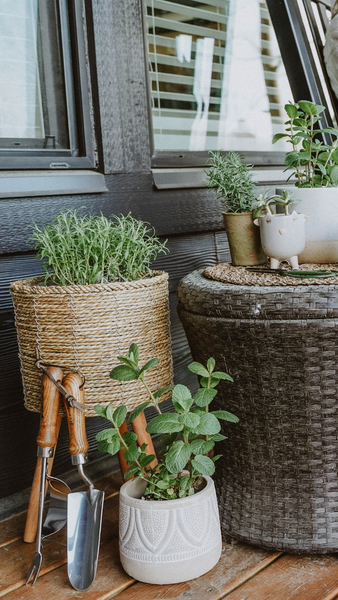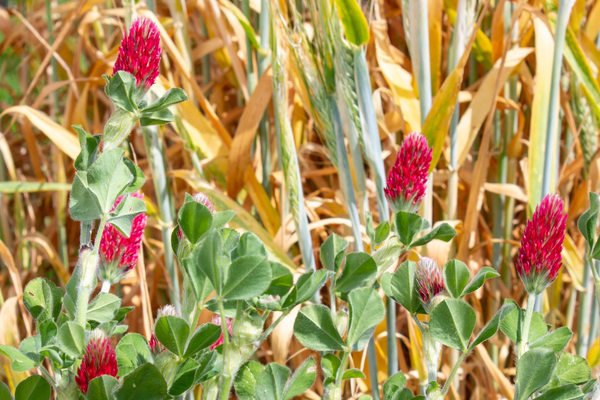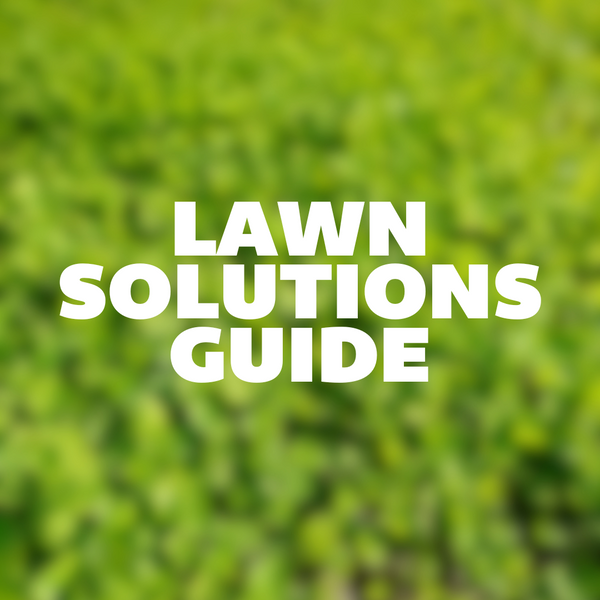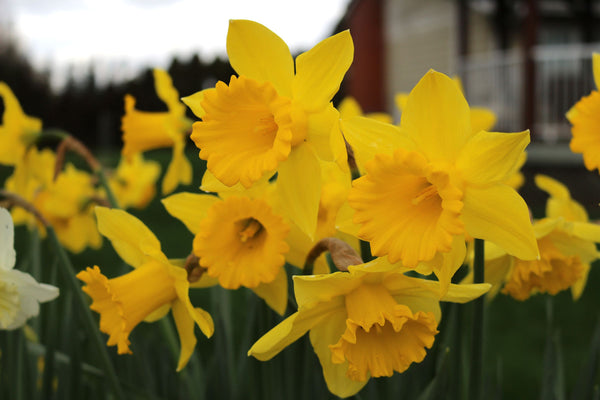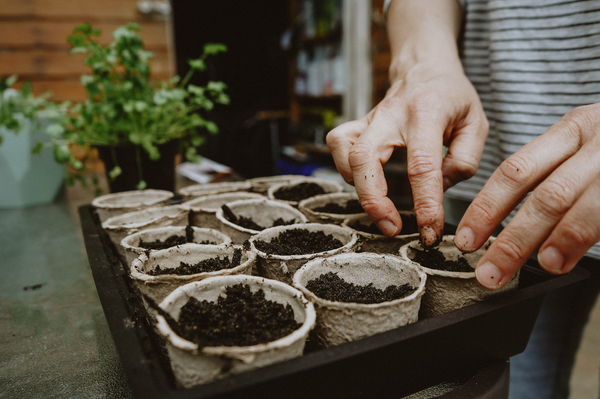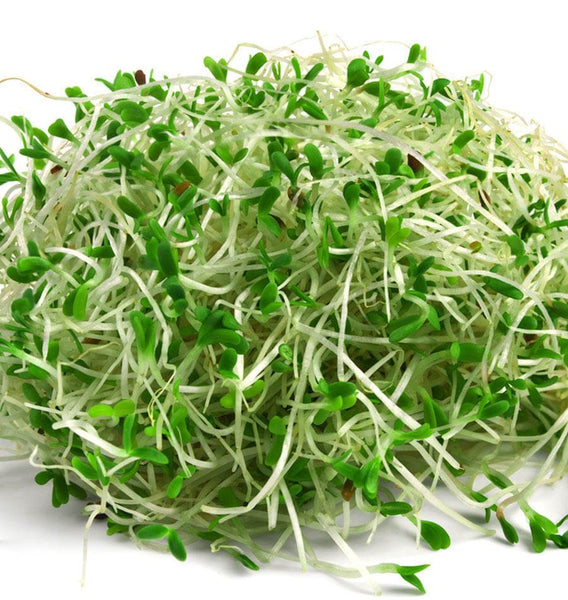Drying herbs for tea, or culinary use, is fast and easy. Harvest on dry days, preferably in the morning after the dew has evaporated but before the sun is strong, or pick at dusk. Rinse and pat dry, if desired.
While herb bundles hanging upside down look pretty, this process can be messy and the herbs may attract dust or bugs. Instead, strip the herbs from their stems—which hold residual water—and dry them flat, preferably on a mesh screen or tray.
Sprinkle the herbs no more than two or three layers thick on the screen. Store away from direct heat and light (room temperature is fine), and fluff them occasionally until they crumble when crushed; leathery, pliable leaves are not dry enough to store.
Use one large handful of fresh herbs per four- to six-cup (one- to 1.5-litre) teapot. When making tea with dried herbs, use one tablespoon (15 mL) per mug. These are simply guidelines, though, so amounts will vary according to personal taste, just as the strength of the herbs will vary according to their growing conditions.
Avoid making herbal tea in a metal pot, which is reactive and could affect the taste; choose ceramic or glass instead. Glass Pots make it easier to gauge when the tea is ready.
Benefits of Teas:
Some claim that peppermint can help protect you from colds or the flu and that it can help build a stronger immune system. The facts that peppermint has both anti-microbial and antioxidant qualities offers support for this claim.
Peppermint can aid in the reduction of a number of painful digestive problems including gas, bloating and nausea. Additionally, it can help ease the symptoms of Irritable Bowel Syndrome. One study showed that 75% of participants who took a capsule of peppermint oil daily saw a significant decrease in their IBS symptoms, in comparison with 38% who took a placebo capsule.
Menthol is also responsible for peppermint’s respiratory-aiding properties. The herb can be used topically or in a tea to alleviate common respiratory symptoms such as congestion, coughing and difficulty breathing caused by obstructed or inflamed passages.
The scent of peppermint is energizing and inhaling its scent can result in heightened levels of energy. In fact, a German study showed peppermint to have the same power as 1,000 milligrams of acetaminophen.
Although best known as a muscle relaxant and antispasmodic, chamomile is also believed to have antiseptic and anti-inflammatory capabilities. Chamomile also aids in digestion when taken as a tea after meals. Chamomile’s apparent ability to relax the smooth muscles of the uterus helps ease the discomfort of menstrual cramping. A chamomile mouthwash may help soothe mouth inflammations and keep gums healthy and be used as a wash or compress for skin problems and inflammations, including inflammations of mucous tissue.
Animal studies show that chamomile contains substances that act on the same parts of the brain and nervous system as anti-anxiety drugs. Never stop taking prescription medications, however, without consulting your doctor. Treat diverticular disease, irritable bowel problems and various gastrointestinal complaints. Chamomile’s reported anti-inflammatory and antispasmodic actions relax the smooth muscles lining the stomach and intestine. The herb may therefore help to relieve nausea, heartburn, and stress-related flatulence. It may also be useful in the treatment of diverticular disorders and inflammatory bowel conditions such as Crohn’s disease. Used as a lotion or added in oil form to a cool bath, chamomile may ease the itching of eczema and other rashes and reduces skin inflammation. It may also speed healing and prevent bacterial infection. Cooled chamomile tea can be used in a compress to help soothe tired, irritated eyes and it may even help treat conjunctivitis. Chamomile’s mildly sedating and muscle-relaxing effects may help those who suffer from insomnia to fall asleep more easily, promote general relaxation and relieve stress and control insomnia. Chamomile tea is recommended to relieve morning sickness during pregnancy.
In a study of lemon balm at Northumbria University in England students were tested for weeks while using either Lemon balm or a placebo. The students did significantly better on the tests after taking Lemon balm and continued to post improved scores for up to six hours after taking the herb. The students taking Lemon balm were noted to be calmer and less stressed during the tests. (From Prevention Magazine Sept. 2004). It is also said to reduce pain during PMS.
Recent evidence suggests that lemon balm has a depressant or sedative action on the central nervous systems of laboratory mice. The German Standard License for lemon balm tea approves it for nervous disorders of sleep and of the gastrointestinal tract, and to stimulate the appetite (Wichtl and Bisset, 1994).
Lemon balm is widely used to treat anxiety and insomnia in Europe. It reduces anxiety and stress and eases sleep disorders. Recently it produced an unexpected result in a research study: it greatly increased the ability to concentrate and perform word and picture tasks.
